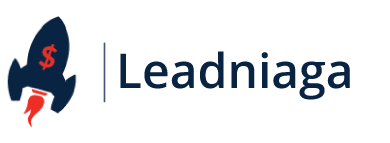
Top Un Sustainable Development Data Providers
Understanding UN Sustainable Development Data
UN Sustainable Development Data is sourced from various international organizations, government agencies, non-profit organizations, research institutions, and academic studies. It includes quantitative indicators, qualitative assessments, and progress reports on each of the 17 SDGs and their associated targets. This data is collected through surveys, censuses, monitoring programs, satellite imagery, remote sensing technologies, and other data collection methods to track global trends, monitor changes over time, and evaluate the effectiveness of development interventions.
Components of UN Sustainable Development Data
UN Sustainable Development Data comprises several key components essential for monitoring progress towards the SDGs and informing policy decisions:
- Indicator Framework: A set of indicators and metrics aligned with each of the 17 SDGs and their respective targets, providing a standardized framework for measuring progress and comparing performance across countries and regions.
- Global Datasets: Large-scale datasets covering various dimensions of sustainable development, such as poverty rates, maternal health outcomes, access to education, renewable energy adoption, greenhouse gas emissions, biodiversity loss, and more.
- Country Profiles: Profiles for individual countries or regions, containing data on key development indicators, trends, challenges, and policy responses, allowing stakeholders to understand specific contexts and tailor interventions accordingly.
- Monitoring Reports: Periodic reports and assessments published by the United Nations and other international organizations, summarizing progress towards the SDGs, highlighting successes and challenges, and recommending actions to accelerate sustainable development efforts.
- Data Platforms: Online platforms and databases that host UN Sustainable Development Data, providing access to datasets, tools for data visualization, analysis, and mapping, and resources for policymakers, researchers, and practitioners working on sustainable development issues.
Top UN Sustainable Development Data Providers
- Leadniaga : Leadniaga offers advanced data analytics solutions for UN Sustainable Development Goals, providing stakeholders with comprehensive insights into global trends, challenges, and opportunities for sustainable development. Their platform leverages cutting-edge technologies such as machine learning, artificial intelligence, and big data analytics to analyze complex datasets and identify actionable insights for policymakers, governments, NGOs, and businesses.
- United Nations Statistics Division (UNSD): The UNSD is the primary source of official statistics for monitoring progress towards the SDGs. They collect, compile, and disseminate data on a wide range of topics, including poverty, health, education, gender equality, environmental sustainability, and more. Their data portal provides access to global indicators, metadata, reports, and methodologies for SDG monitoring and reporting.
- World Bank: The World Bank is a leading provider of development data and research, offering a wealth of information on global trends, development indicators, and policy analysis. Their World Development Indicators database includes key metrics related to the SDGs, such as poverty rates, access to basic services, infrastructure development, and environmental sustainability.
- United Nations Development Programme (UNDP): The UNDP produces human development reports and indices that assess progress towards the SDGs and inform policy discussions on sustainable development. Their data portal offers access to national, regional, and global datasets on human development, inequality, governance, and resilience, supporting evidence-based policymaking and programming.
- Global Partnership for Sustainable Development Data (GPSDD): The GPSDD is a collaborative initiative that promotes the use of data for sustainable development. They work with governments, civil society organizations, and the private sector to improve data availability, quality, and accessibility for SDG monitoring and implementation. Their data initiatives include data innovation projects, data collaboratives, and capacity-building efforts to strengthen data ecosystems in low- and middle-income countries.
Importance of UN Sustainable Development Data
UN Sustainable Development Data is essential for stakeholders in the global community for the following reasons:
- Monitoring Progress: Enables stakeholders to track progress towards the SDGs, assess achievements, identify gaps, and prioritize areas for action to ensure that no one is left behind.
- Policy Formulation: Informs evidence-based policymaking, resource allocation, and programmatic interventions by providing insights into development trends, challenges, and opportunities at the global, regional, and national levels.
- Accountability and Transparency: Promotes accountability and transparency in sustainable development efforts by providing reliable data and indicators to measure performance, evaluate impact, and hold governments and other stakeholders accountable for their commitments.
- Partnership Building: Facilitates collaboration and partnership building among governments, civil society organizations, the private sector, academia, and other stakeholders to address complex development challenges collectively and leverage resources, expertise, and innovation for sustainable development.
Applications of UN Sustainable Development Data
The applications of UN Sustainable Development Data are diverse and encompass various aspects of sustainable development planning, implementation, and monitoring:
- Policy Planning: Informs policy formulation, development planning, and decision-making processes by providing evidence-based insights into development priorities, challenges, and opportunities.
- Resource Allocation: Guides resource allocation and investment decisions by identifying areas with the greatest development needs, targeting vulnerable populations, and leveraging funding and technical assistance for maximum impact.
- Program Monitoring and Evaluation: Supports monitoring and evaluation of development programs, projects, and interventions by providing performance indicators, benchmarks, and targets for measuring progress, assessing effectiveness, and learning from experiences.
- Advocacy and Awareness: Strengthens advocacy efforts, public awareness campaigns, and citizen engagement initiatives by raising awareness about sustainable development issues, mobilizing support, and fostering dialogue and collaboration among stakeholders.
Conclusion
In conclusion, UN Sustainable Development Data plays a crucial role in monitoring progress towards the SDGs, informing policy decisions, and driving collective action for sustainable development worldwide. With leading providers like Leadniaga and others offering advanced data analytics solutions, stakeholders have access to a wealth of information and insights to guide their efforts towards achieving the SDGs. By harnessing the power of UN Sustainable Development Data effectively, policymakers, governments, NGOs, businesses, and citizens can work together to build a more sustainable, inclusive, and resilient future for all.
Our Datasets are integrated with :



10,000+ Satisfied Data Customers including :








